
Raising the roof on a Cape Cod house adds valuable living space. Learn how much it costs to raise the roof on a Cape Cod house and what affects the price.
Metal roofs in Portland cost an average of $8,756 and range from $2,483 to $15,029. A professional roofer can assess your home size, roof pitch, and the materials you want to calculate your total.
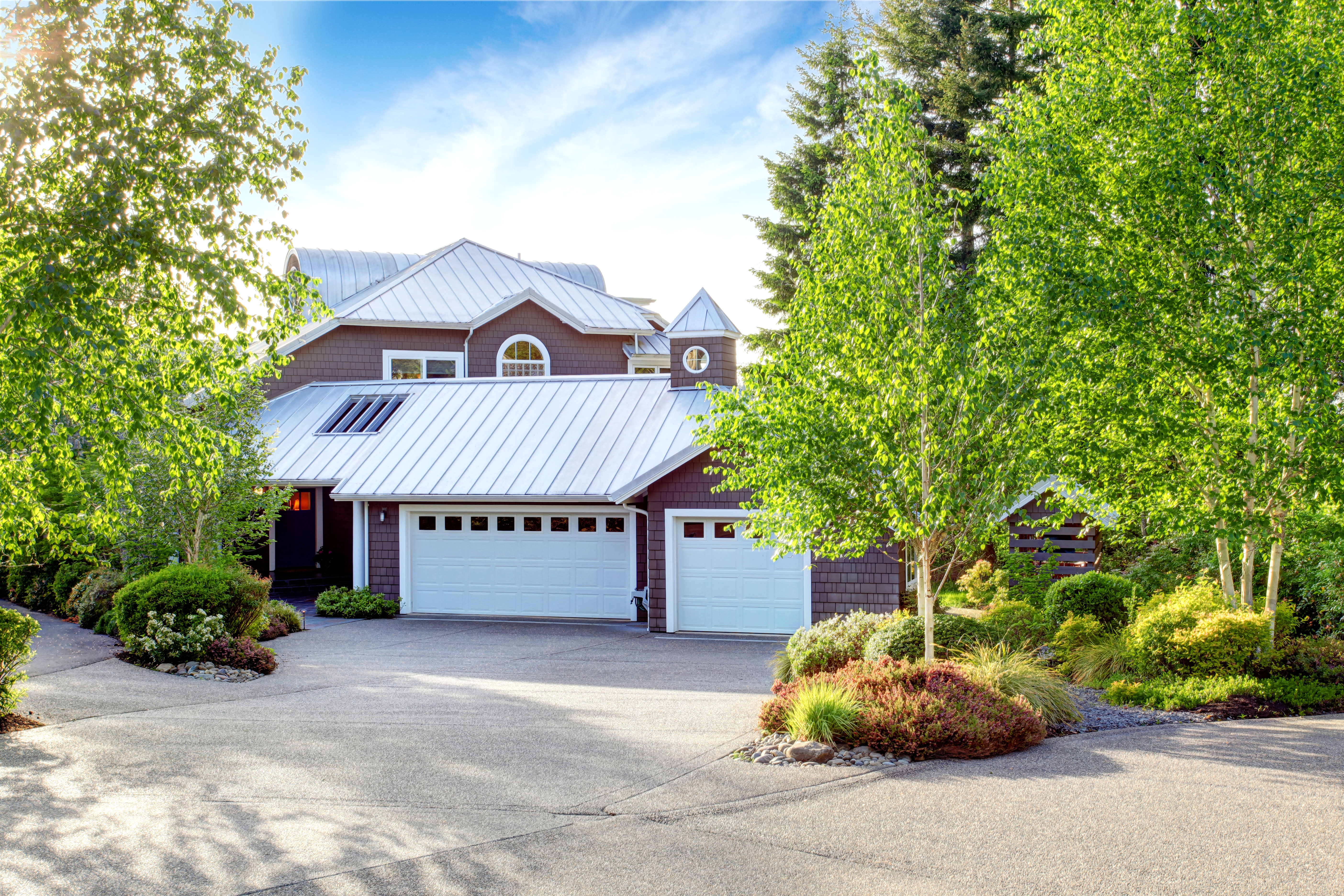

The size of your roof and the type of metal you choose will affect your total more than any other factor.
Standing seam metal roofs are the most popular type of metal roof in Portland, but they’re one of the most expensive options.
The humidity and frequent rainfall could lead to hidden damage under your old roof, which can require expensive repairs.
Don’t forget to budget for roof permits, which average $440 in Portland, Oregon.
Metal roof costs in Portland average $8,756, and most projects total between $2,483 and $15,029. Your costs will depend mostly on the size of your roof, the type of metal you choose, and the roof style you go with. Portland sees over 36 inches of rain each year, which makes roof leaks more common. It’s a good idea to budget a few thousand extra just in case your roofer finds mold or water damage when removing the old material.
You could pay just a few hundred dollars to install a metal roof as an accent on a single awning, and prices can climb as high as $28,000. There are a few key factors to consider to get an accurate estimate for your project.
One of the most important factors is the size of your roof. Metal roofs cost between $4 and $30 per square foot, with an average of $11 per square foot, so you can start by measuring the area you want to cover and using that average as a baseline. The average home in Portland is roughly 1,700 square feet, and that size house has 2,000 square feet of roof deck to cover, accounting for average slope. Installing a metal roof on this entire area would cost an average of $22,000.
However, many homeowners in Portland use metal roofing as an accent for more affordable asphalt shingle roofing, so your project costs could be significantly lower.
| Roof Square Footage | Average Cost |
|---|---|
| 100 | $1,100 |
| 250 | $2,750 |
| 500 | $5,500 |
| 1,000 | $11,000 |
| 2,000 | $22,000 |
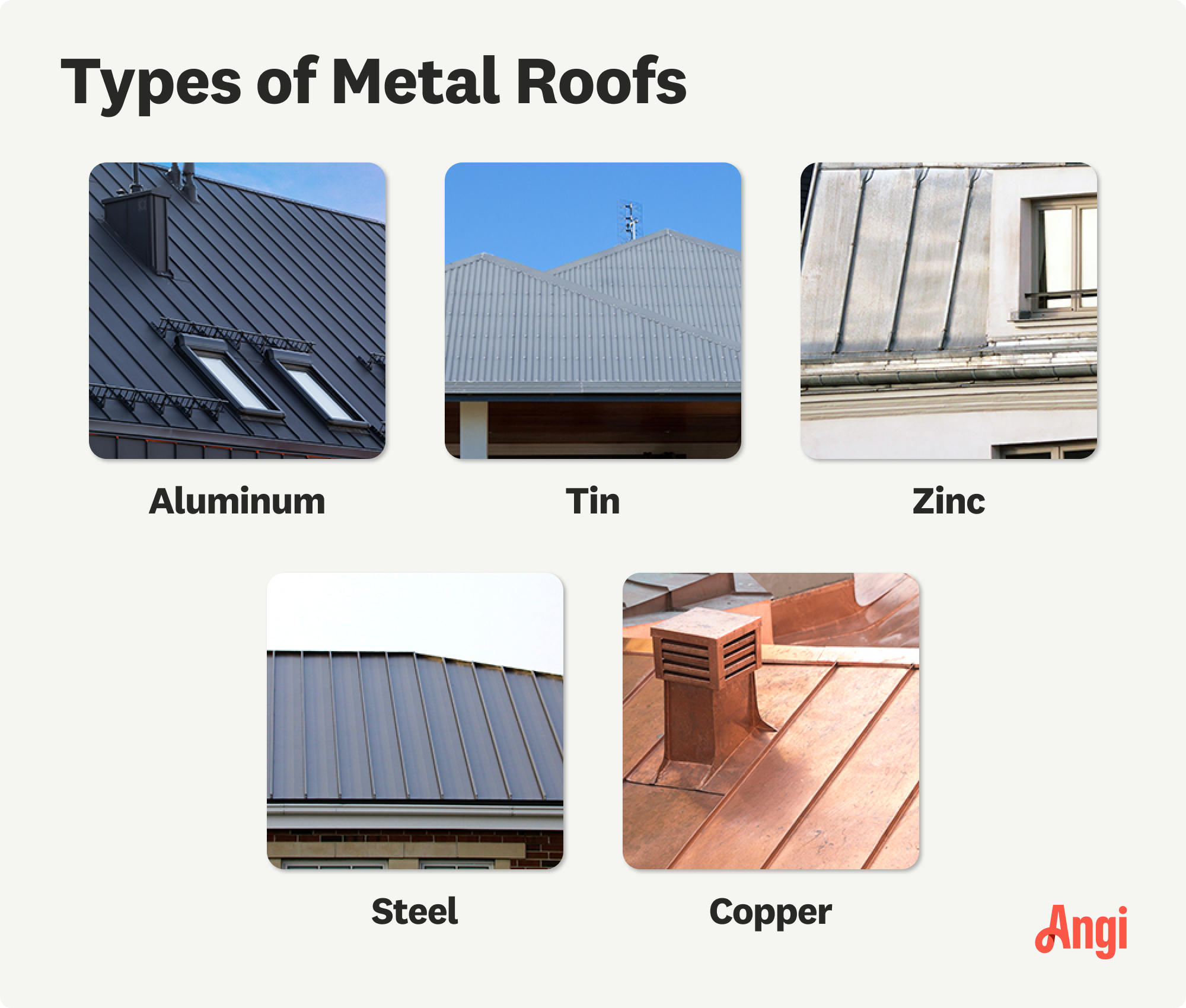
The type of metal you choose will affect costs, too. Aluminum is the most affordable option, but won’t last as long as most others. Close to a third of the city is covered by tree canopies, too, and aluminum is one of the most likely metals to dent from impact from tree debris.
Coated steel is the most common metal roof material in Portland, as it stands up well to impact, has a long lifespan, and won’t rust easily, even in the rainy, humid Portland climate. Copper is a high-end and expensive option, reaching up to $30 per square foot. It boasts the best curb appeal and naturally resists algae and moss, which are prevalent in Portland due to the constant moisture in the air and can damage roofs over time.
Tin and zinc roofs are less common in the area, as they are throughout most of the U.S. Tin and zinc roofs cost a little more than aluminum but less than steel.
| Type of Metal | Cost (per Sq Ft.) |
|---|---|
| Aluminum | $4–$11 |
| Copper | $15–$30 |
| Tin | $5–$12 |
| Steel | $6–$16 |
| Zinc | $6–$12 |
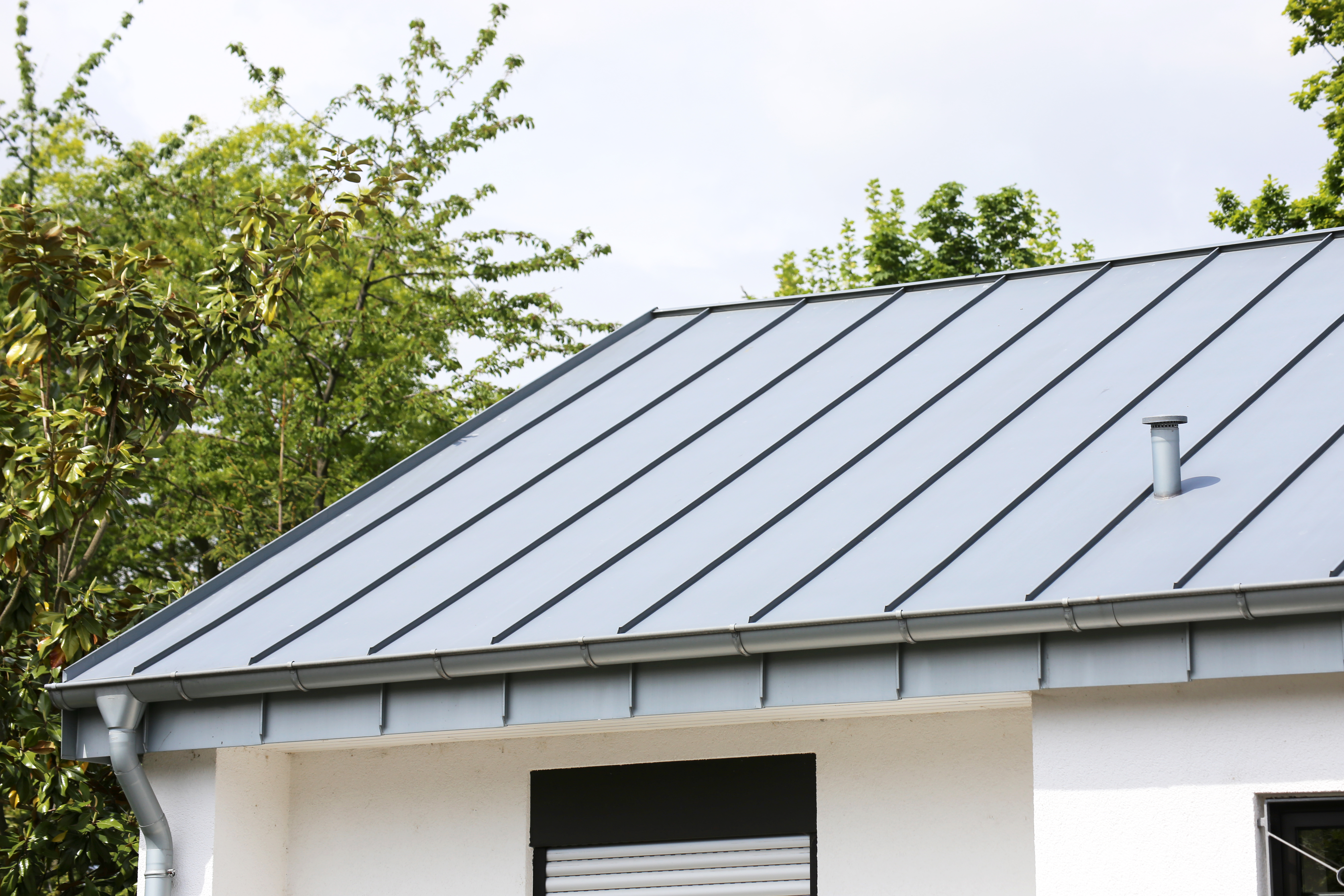
There are a few different metal roof designs you can choose from, too, and these play another important role in the metal roof costs Portland residents see.
Standing seam metal roofs are the most common option in the area, as they offer excellent curb appeal and rain resistance. Corrugated metal roofs are half the price but add less to home value. Metal shingles are slightly more affordable than standing seam metal roofs, but they aren’t nearly as widely available in the Pacific Northwest.
| Roof Design | Cost (per Sq Ft.) | Pros | Cons |
|---|---|---|---|
| Corrugated | $3.50–$15 | Affordability | Curb appeal |
| Metal shingles | $7–$22 | Curb appeal | Prone to leaks |
| Standing seam | $7–$30 | Value | Expensive |
Portland sees frequent rainfall and high humidity levels throughout much of the year due, in part, to the proximity to the Pacific Ocean. Heavy rainfall like this increases the risk of roof leaks and also the presence of moss on your roof, which can hold moisture against it and even lift up shingles, allowing water inside your home.
It should be standard operating procedure for homeowners and professional crews to install a drip edge to ensure water is being directed into the gutters and moved away from the home. Routinely cleaning clogged gutters can also mitigate roof leaks.
As a result, roof leaks are a common occurrence in Portland and can lead to hidden damage that can add hundreds or thousands of dollars to your total. These repairs are challenging to plan for, but if you’re replacing your old roof because of a leak, it’s a good idea to budget higher for deck repairs.
Labor will account for an average of between $4,400 and $5,250 in Portland, Oregon, which is 50% to 60% of your total. Labor charges are close to 25% higher than the national average due to the high cost of living, which affects how much contractors charge. Despite the high cost of labor, it’s always a good idea to hire a professional roofer in Portland, especially since frequent rain and moisture can more quickly expose mistakes made by DIYers.
The City of Portland also requires permits for roof replacements, and the average local cost of a roof replacement permit is $440. The city issues five roofing permits at a time to roofing contractors, and a portion of that total will appear on your estimate. Your metal roofer will pull the permit and schedule the final inspection, but you’ll be responsible for the permit fees.
A new metal roof will increase home value, both because it improves curb appeal and because buyers will get some peace of mind knowing that they’re unlikely to run into leaks and other issues for decades to come. The average ROI for a metal roof in Oregon is 50%, meaning you’ll see an average value bump of close to $4,500.
Home is the most important place on earth, which is why Angi has helped more than 150 million homeowners transform their houses into homes they adore. To help homeowners with their next project, Angi provides readers with the most accurate cost data and upholds strict editorial standards. We survey real Angi customers about their project costs to develop the pricing data you see, so you can make the best decisions for you and your home. We pair this data with research from reputable sources, including the U.S. Bureau of Labor Statistics, academic journals, market studies, and interviews with industry experts—all to ensure our prices reflect real-world projects.
Want to help us improve our cost data? Send us a recent project quote to [email protected]. Quotes and personal information will not be shared publicly.
From average costs to expert advice, get all the answers you need to get your job done.

Raising the roof on a Cape Cod house adds valuable living space. Learn how much it costs to raise the roof on a Cape Cod house and what affects the price.
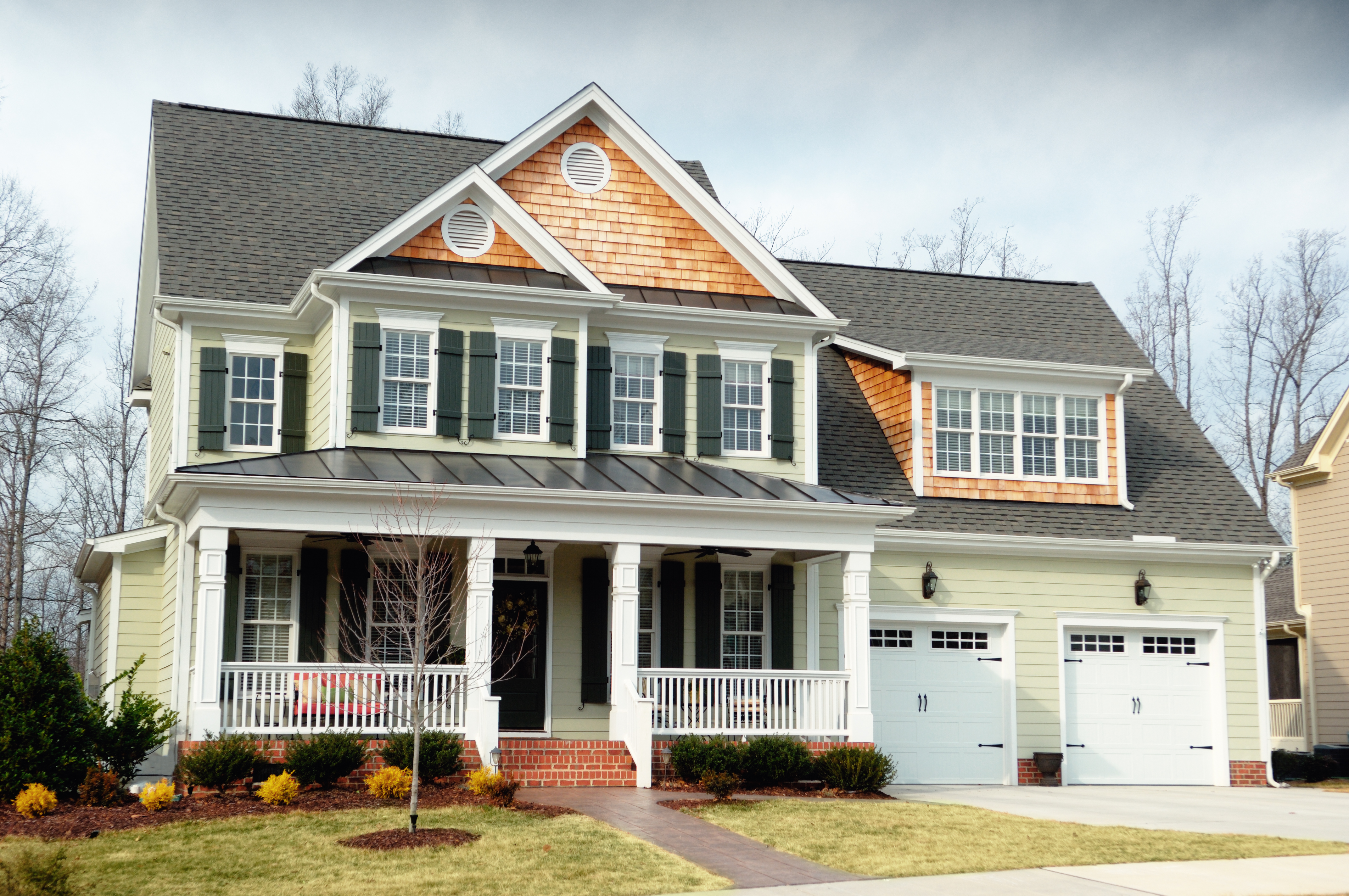
Dealing with a visibly damaged roof or leak? Learn about roof repair costs in Columbus to see how much you’ll need to budget for a permanent solution.

Learn about roof replacement costs in Columbus and what factors are at play to budget accurately and make sure you’re getting a fair price.
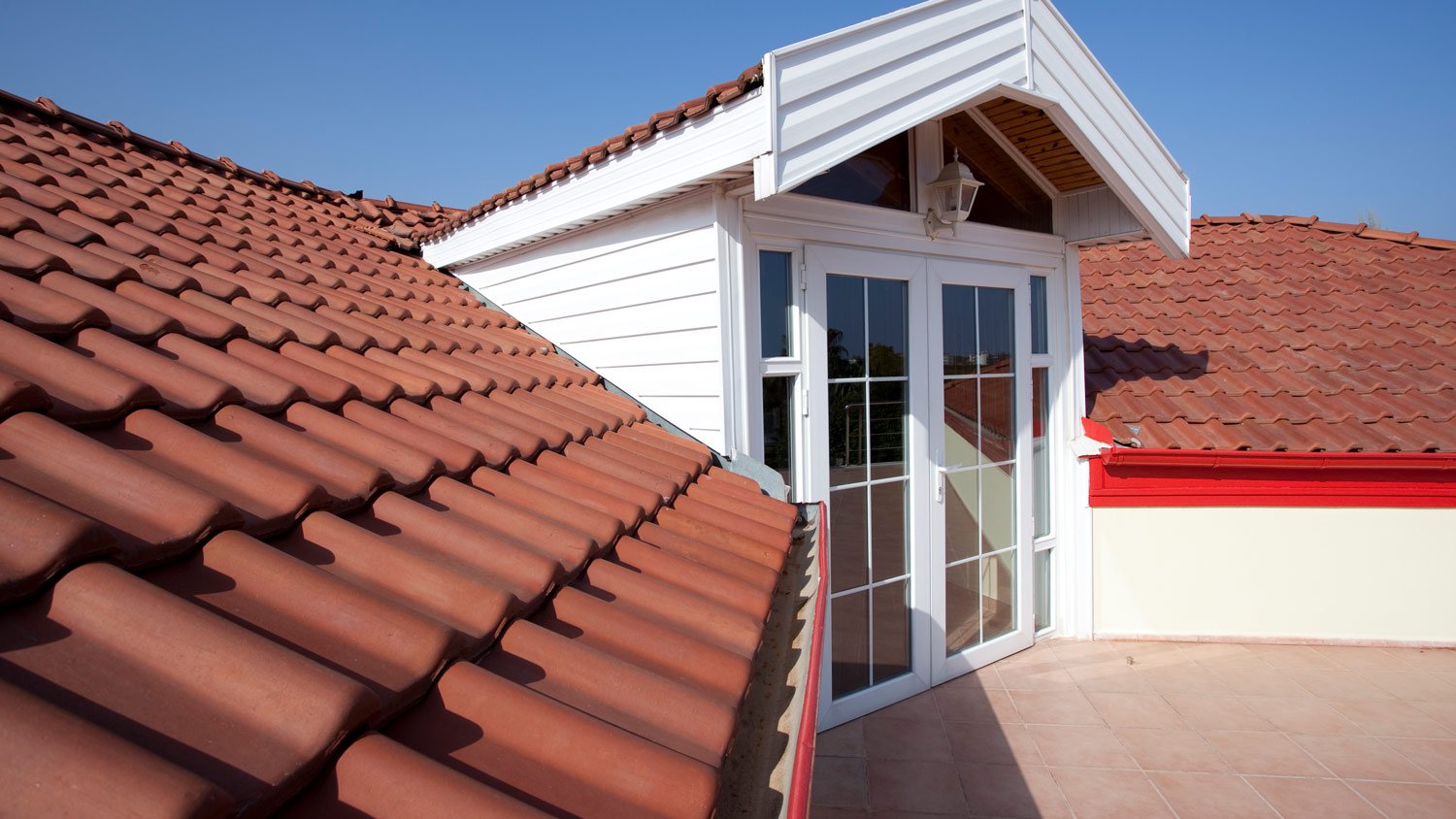
If you’re upgrading your roof with stone-coated steel, you should be aware of the total project cost. Learn what will impact your final stone-coated steel roofing costs.

If you need a new flat roof, learn about tar and gravel roof costs and what can affect your total to make sure you budget accurately.

What's a cupola? Is it possible to have one on my home? What do they look like? Learn all about the variety of cupolas you can add to your home or barn.